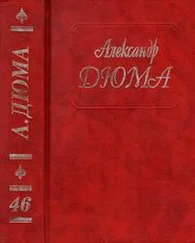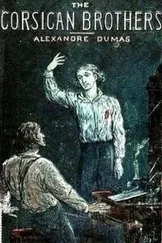Александр Дюма - The Conspirators
Здесь есть возможность читать онлайн «Александр Дюма - The Conspirators» весь текст электронной книги совершенно бесплатно (целиком полную версию без сокращений). В некоторых случаях можно слушать аудио, скачать через торрент в формате fb2 и присутствует краткое содержание. Год выпуска: 2014, Издательство: epubBooks Classics, Жанр: Историческая проза, на английском языке. Описание произведения, (предисловие) а так же отзывы посетителей доступны на портале библиотеки ЛибКат.
- Название:The Conspirators
- Автор:
- Издательство:epubBooks Classics
- Жанр:
- Год:2014
- ISBN:нет данных
- Рейтинг книги:3 / 5. Голосов: 1
-
Избранное:Добавить в избранное
- Отзывы:
-
Ваша оценка:
- 60
- 1
- 2
- 3
- 4
- 5
The Conspirators: краткое содержание, описание и аннотация
Предлагаем к чтению аннотацию, описание, краткое содержание или предисловие (зависит от того, что написал сам автор книги «The Conspirators»). Если вы не нашли необходимую информацию о книге — напишите в комментариях, мы постараемся отыскать её.
The Conspirators — читать онлайн бесплатно полную книгу (весь текст) целиком
Ниже представлен текст книги, разбитый по страницам. Система сохранения места последней прочитанной страницы, позволяет с удобством читать онлайн бесплатно книгу «The Conspirators», без необходимости каждый раз заново искать на чём Вы остановились. Поставьте закладку, и сможете в любой момент перейти на страницу, на которой закончили чтение.
Интервал:
Закладка:
If D'Harmental had not known the room in question, the voice of the captain would soon have served him for a guide.
"Now, my little loves," said he, "the third and last verse, and together in the chorus." Then he began singing in a magnificent bass voice, and four or five female voices took up the chorus.
"That is better," said the captain; "now let us have the 'Battle of Malplaquet."
"No, no," said a voice; "I have had enough of your battle."
"What! enough of it—a battle I was at myself?"
"That is nothing to me. I like a romance better than all your wicked battle–songs, full of oaths." And she began to sing "Linval loved Arsene—"
"Silence!" said the captain. "Am I not master here? As long as I have any money I will be served as I like. When I have no more, that will be another thing; then you may sing what you like; I shall have nothing to say to it."
It appeared that the servants of the cabaret thought it beneath the dignity of their sex to subscribe to such a pretension, for there was such a noise that D'Harmental thought it best to announce himself.
"Pull the bobbin, and the latch will go up," said the captain.
D'Harmental followed the instruction which was given him in the words of Little Red Riding–hood; and, having entered, saw the captain lying on a couch before the remains of an ample dinner, leaning on a cushion, a woman's shawl over his shoulders, a great pipe in his mouth, and a cloth rolled round his head like a turban. Three or four servants were standing round him with napkins in their hands. On a chair near him was placed his coat, on which was to be seen a new shoulder–knot, his hat with a new lace, and the famous sword which had furnished Ravanne with the facetious comparison to his mother's spit.
"What! is it you?" cried the captain. "You find me like Monsieur de Bonneval—in my seraglio, and surrounded by my slaves. You do not know Monsieur de Bonneval, ladies: he is a pasha of three tails, who, like me, could not bear romances, but who understood how to live. Heaven preserve me from such a fate as his!"
"Yes, it is I, captain," said D'Harmental, unable to prevent laughing at the grotesque group which presented itself. "I see you did not give me a false address, and I congratulate you on your veracity."
"Welcome, chevalier," said the captain. "Ladies, I beg you to serve monsieur with the grace which distinguishes you, and to sing him whatever songs he likes. Sit down, chevalier, and eat and drink as if you were at home, particularly as it is your horse we are eating and drinking. He is already more than half gone, poor animal, but the remains are good."
"Thank you, captain, I have just dined; and I have only one word to say to you, if you will permit it."
"No, pardieu! I do not permit it," said the captain, "unless it is about another engagement—that would come before everything. La Normande, give me my sword."
"No, captain; it is on business," interrupted D'Harmental.
"Oh! if it is on business, I am your humble servant; but I am a greater tyrant than the tyrants of Thebes or Corinth—Archias, Pelopidas, Leonidas, or any other that ends in 'as,' who put off business till to–morrow. I have enough money to last till to–morrow evening; then, after to–morrow, business."
"But at least after to–morrow, captain, I may count upon you?"
"For life or death, chevalier."
"I believe that the adjournment is prudent."
"Prudentissimo!" said the captain. "Athenais, light my pipe. La Normande, pour me out something to drink."
"The day after to–morrow, then, captain?"
"Yes; where shall I find you?"
"Listen," replied D'Harmental, speaking so as to be heard by no one but him. "Walk, from ten to eleven o'clock in the morning, in the Rue du Temps Perdu. Look up; you will be called from somewhere, and you must mount till you meet some one you know. A good breakfast will await you."
"All right, chevalier," replied the captain; "from ten to eleven in the morning. Excuse me if I do not conduct you to the door, but you know it is not the custom with Turks."
The chevalier made a sign with his hand that he dispensed with this formality, and descended the staircase. He was only on the fourth step when he heard the captain begin the famous song of the Dragoons of Malplaquet, which had perhaps caused as much blood to be shed in duels as there had been on the field of battle.
Chapter VIII
The Garret
The next day the Abbe Brigaud came to the chevalier's house at the same hour as before. He was a perfectly punctual man. He brought with him three things particularly useful to the chevalier; clothes, a passport, and the report of the Prince of Cellamare's police respecting what the regent was going to do on the present day, March 24, 1718. The clothes were simple, as became the cadet of a bourgeois family come to seek his fortune in Paris. The chevalier tried them on, and, thanks to his own good looks, found that they became him admirably.
The abbe shook his head. He would have preferred that the chevalier should not have looked quite so well; but this was an irreparable misfortune. The passport was in the name of Signior Diego, steward of the noble house of Oropesa, who had a commission to bring back to Spain a sort of maniac, a bastard of the said house, whose mania was to believe himself regent of France. This was a precaution taken to meet anything that the Duc d'Orleans might call out from the bottom of the carriage; and, as the passport was according to rule, signed by the Prince de Cellamare, and "viséd" by Monsieur Voyer d'Argenson, there was no reason why the regent, once in the carriage, should not arrive safely at Pampeluna, when all would be done.
The signature of Monsieur Voyer d'Argenson was imitated with a truth which did honor to the caligraphers of the Prince de Cellamare. As to the report, it was a chef–d'oeuvre of clearness; and we insert it word for word, to give an idea of the regent's life, and of the manner in which the Spanish ambassador's police was conducted. It was dated two o'clock in the morning.
"To–day the regent will rise late. There has been a supper in his private rooms; Madame d'Averne was there for the first time instead of Madame de Parabere. The other women were the Duchesse de Falaris, and Saseri, maid of honor to madame. The men were the Marquis de Broglie, the Count de Nocé, the Marquis de Canillac, the Duc de Brancas, and the Chevalier de Simiane. As to the Marquis de Lafare and Monsieur de Fargy, they were detained in bed by an illness, of which the cause is unknown. At noon there will be a council. The regent will communicate to the Ducs de Maine and de Guiche the project of the treaty of the quadruple alliance, which the Abbe Dubois has sent him, announcing his return in three or four days.
"The rest of the day is given entirely to paternity. The day before yesterday the regent married his daughter by La Desmarets, who was brought up by the nuns of St. Denis. She dines with her husband at the Palais Royal, and, after dinner, the regent takes her to the opera, to the box of Madame Charlotte de Baviere. La Desmarets, who has not seen her daughter for six years, is told that, if she wishes to see her, she can come to the theater. The regent, in spite of his caprice for Madame d'Averne, still pays court to Madame de Sabran, who piques herself on her fidelity—not to her husband, but to the Duc de Richelieu. To advance his affairs, the regent has appointed Monsieur de Sabran his maitre–d'hotel."
"I hope that is business well done," said the Abbe Brigaud.
"Yes, my dear abbe," replied D'Harmental; "but if the regent does not give us greater opportunities than that for executing our enterprise, it will not be easy for us to take him to Spain."
Читать дальшеИнтервал:
Закладка:
Похожие книги на «The Conspirators»
Представляем Вашему вниманию похожие книги на «The Conspirators» списком для выбора. Мы отобрали схожую по названию и смыслу литературу в надежде предоставить читателям больше вариантов отыскать новые, интересные, ещё непрочитанные произведения.
Обсуждение, отзывы о книге «The Conspirators» и просто собственные мнения читателей. Оставьте ваши комментарии, напишите, что Вы думаете о произведении, его смысле или главных героях. Укажите что конкретно понравилось, а что нет, и почему Вы так считаете.












